He trains in a region with a restricted harness racing season and he’s won races with unfashionably bred horses that have been sacked by other trainers. He’s persevered with a horse that pulled in training for an hour and a half, and he’s battled a major illness.
This is the story of trainer Murray Gibbs who has a small stable in Levin.
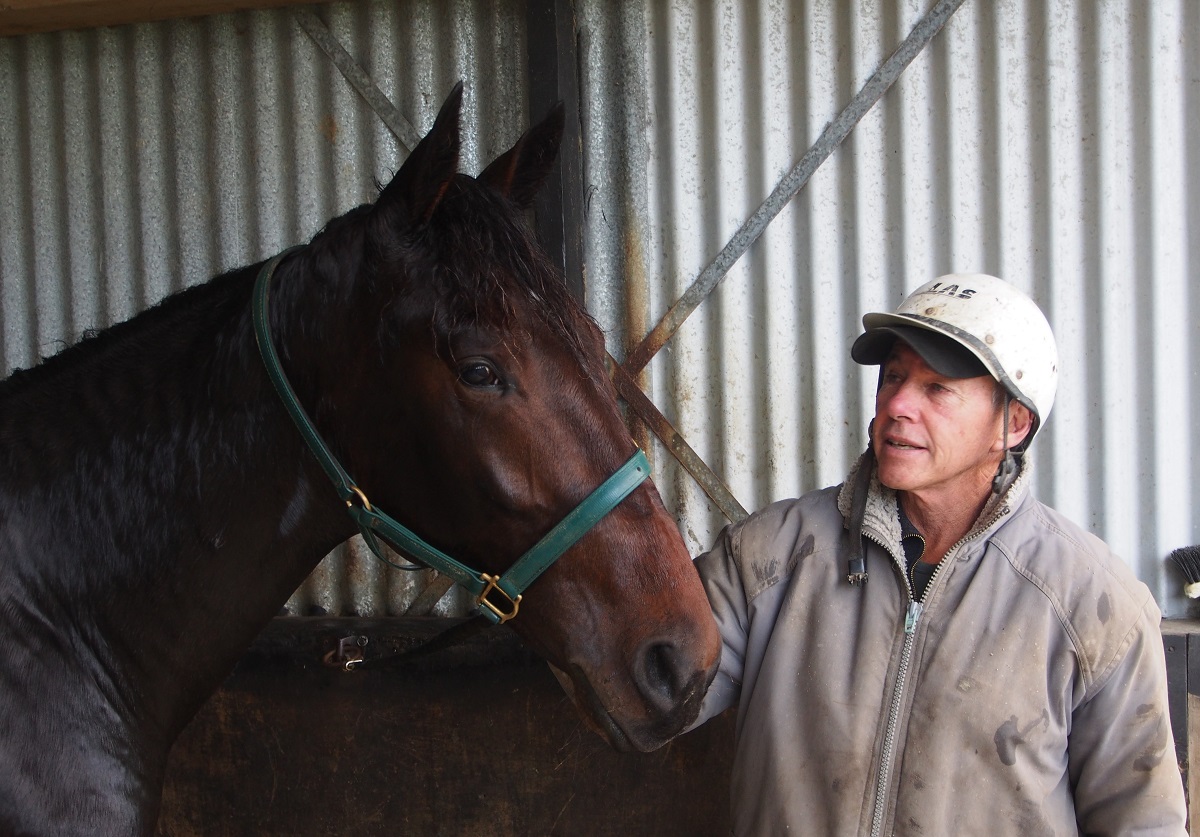
Gibbs was born in the Wairarapa which is generally known more for its thoroughbreds than harness racing.
“One of my father’s best friends was Noel Lochhead. When I was ten we used to go down to his place. He had an old trotter called Belmont Bill (Jimmy Tryax). I’ll never forget it. One day he just put me on it and gave me a drive. I got the bug instantly,” Gibbs said.
His first job in the sport was with Woodville trainer Gordon Bradley, the grandfather of well-known Central District jockey Daryl Bradley.
“I was eighteen and it was pretty tough working out the back of Woodville.”
He worked for Bradley for three months then shifted over to Ken Tarrant’s in the Wairarapa where he stayed for three and a half years.
“That’s where I learned most of what I know now.”
Ken’s best horse was Captain Rufus (Soky’s Atom) which won seven races and ran second in the Group Two Cambridge Classic. It also ran second in the Group Two Taylor Mile and third in the Group One New Zealand Messenger when trained by Barry Purdon.
“I realised when I was working for Ken that I wasn’t going to get rich working in harness stables so I got into the hospitality industry. I worked for Ken until 1.00pm then worked as a night porter at Solway Park in Masterton.”
Gibbs got his harness racing driver’s license while at Tarrants and drove his first winner, Meddle Maid, (Meddlesome) at Manawatu in March 1987. The horse won by a nose with a nose back to third.
Following his stint in the Wairarapa Gibbs moved to Wellington where he continued to work in hospitality before buying a courier run.
“That’s went I started to get into training. I did that for about six years and then Hutt Park closed.”
The first horse Murray took to the races as a trainer was Meadow Roe (Meadow Roydon) – to Hutt Park in April 1991. She finished second paying $18 for a place and she gave him his first win as a trainer shortly after.
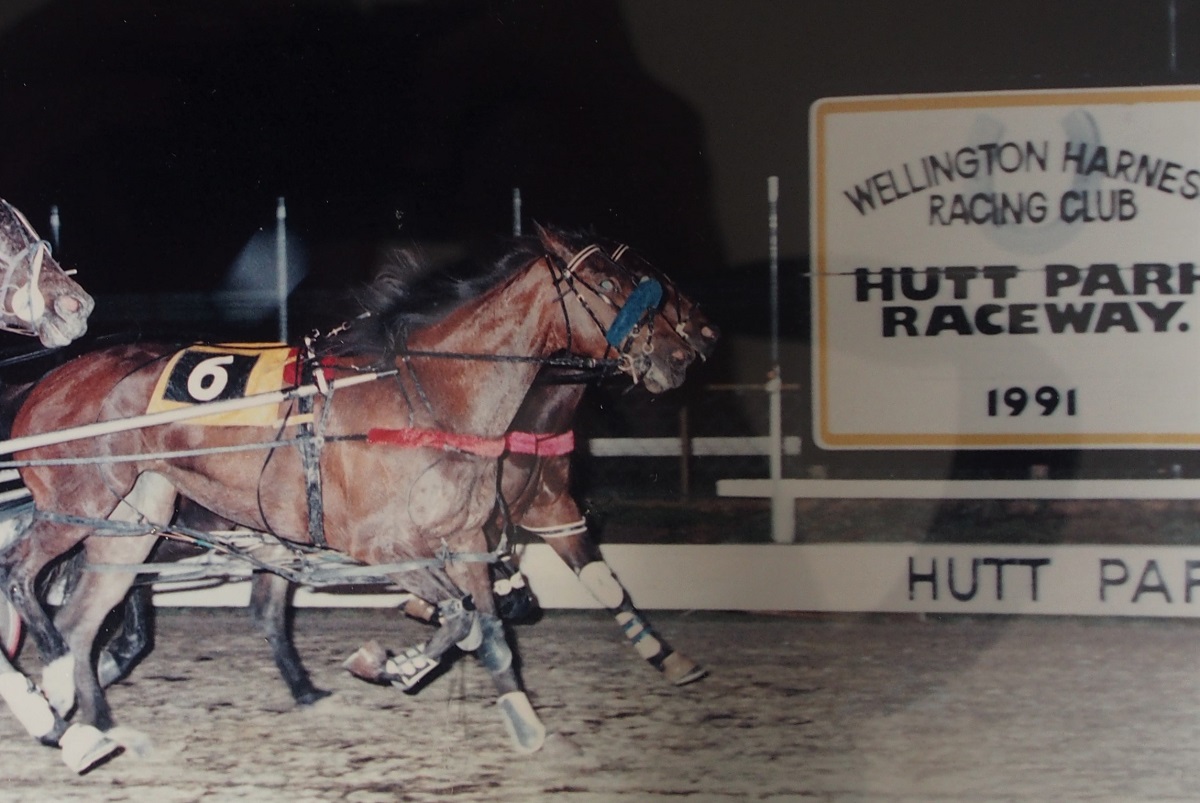
Meadow Roe’s third dam Elsinore (U Scott) was the mother of the great free legged pacer Robalan (Lumber Dream) which won thirty nine races.
“Derek Jones and Fred Fletcher were coming up to Hutt Park. We might get a southerly roll in and they’d have to stay for three or four days so I’d go down every morning helping them, having a coffee and just picking their brains. Fred was fantastic.”
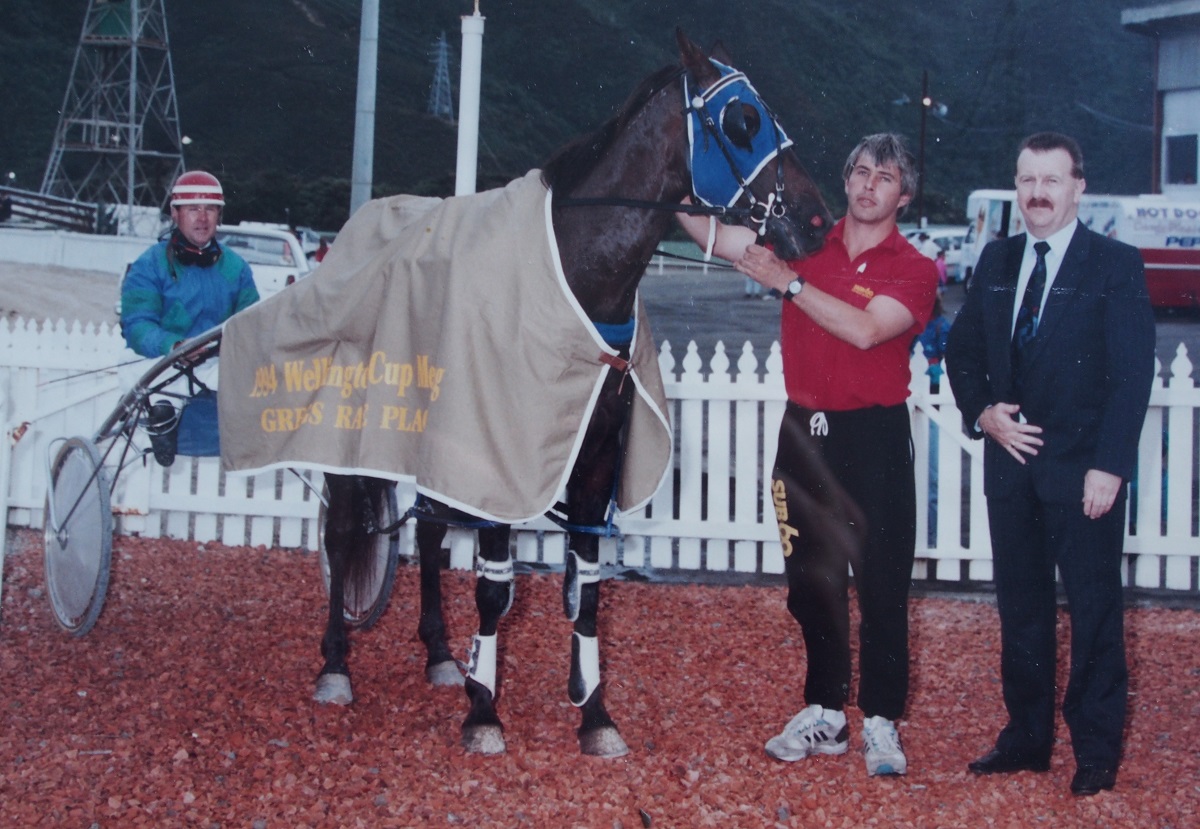
After Hutt Park closed Gibbs relocated to the Kapiti Coast.
“I wanted to be closer to Palmy (Palmerston North) because that’s where all the racing was. We bought a couple of acres at Otaihanga near Paraparaumu, and I had access to a galloping trainer’s sand track and trained at Peka Peka beach. I had quite a bit of success there with hand me downs.”
He worked a few jobs in Wellington to support his young family including at the TAB phone betting call centre. He took over the management of the TAB Agency at Paraparaumu and was there for three years before moving to Te Hora where he bought ten acres.
“I was able to put my own little track in so I didn’t have to go to the beach every day. I still went to Peka Peka beach and did all my fast work at Otaki.”
It was from there that he trained Springfield Dave (Road Machine). Out of Chiola Hanover mare Chiolsa, his mother Ilsa Voss won fourteen races including the National Trot and the Canterbury Park Trotting Cup. He was bred by Dave Phillips.
“Dave used to do radical things with his breeding. Springfield Dave was a big mad puller. He would just bolt on you and you couldn’t hold him. I took him down to the Peka Peka beach and I was working with Frank Phelan and John Phillips. I’d be halfway up the beach and this horse would bolt so after three workouts I decided to pull the right rein and drove him into the surf. It would be the second line of breakers before he’d stop. We did that four times and after that I could drive him with two fingers.”
Springfield Dave had nine starts for Gibbs, winning twice.
“From there I had a procession of hand me downs and leased horses. When you’re starting out you take anything because you just want to have a horse in work. To learn from those types of horses early on was fantastic.”
He says for some reason he got a lot of pullers.
“I was young and pretty fit and I didn’t mind working with them. I won races with most of them. Now with a bit of age and experience I can pick and choose.”
At that point his property became part of the Transmission Gully Expressway negotiations.
“There’d been a road earmarked there for about forty years. We got a letter saying they were going to put the motorway in and our property was one they wanted to buy.”
Gibbs sold the property to NZTA and then rented it back from them for two and a half years before moving to Levin where he’s been for ten years.
“I just wanted to be closer to Palmy.”
The Levin property is fifteen acres and has a seven hundred and twenty three metre track with a soft rock base topped with three different types of sand.
“We get them pretty fit and then we either go to Palmerston or Otaki. We can get on the Otaki track after nine (o’clock), that’s why we tend to go there.”
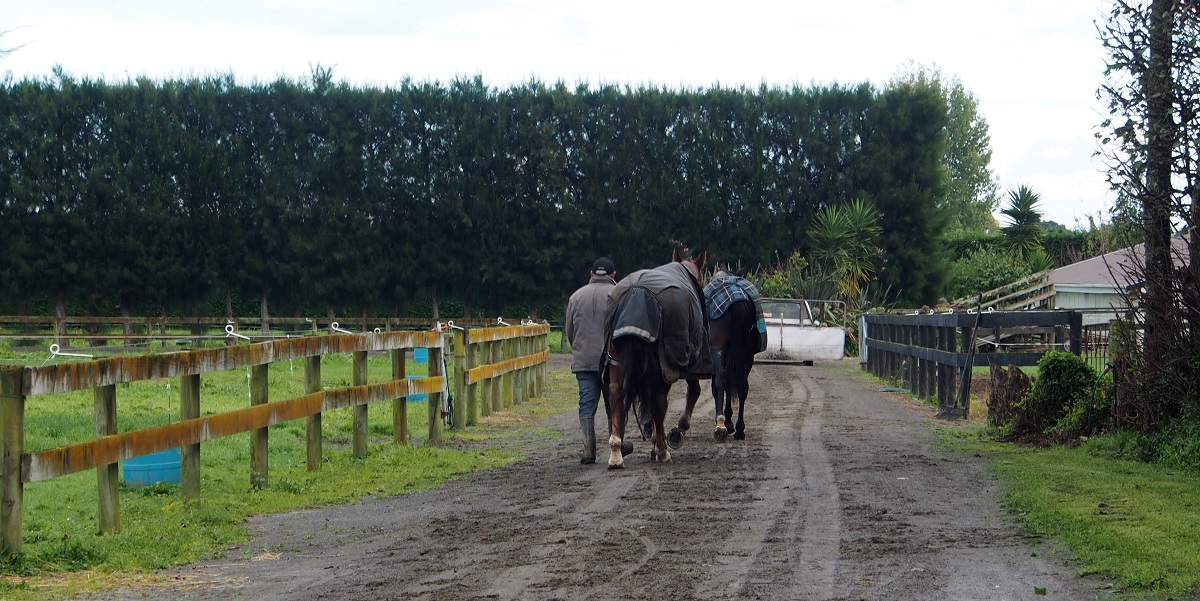
Another side income during those years was driving for Majestic Horse Floats.
“I did that up until nine years ago when I got diagnosed with throat cancer. We’d been here about four months. I had to move back to Wellington for six months because the treatment was so hard. The Wellington Hospital Board put my wife (Margaret) and I into accommodation and I had treatment every day. I was 65kgs when I came out.”
The treatment had it’s side effects.
“The radiation has damaged the muscles in by tongue so I’m slowly losing the use of my tongue. Once a month I go to speech therapy. They’re looking at maybe doing another operation. As far as the cancer is concerned that’s all gone, it’s just the effects of radiation.”
Gibbs says first and foremost his wife and their family have kept him going.
While still in recovery Gibbs got a phone call one day from former Hutt Park race secretary John Penney.
“I hadn’t heard from him for six to eight years. I was about four months out of treatment, and I was sitting at home wondering what I was going to do. He rang me out of the blue and didn’t know I’d been through treatment.”
Penney offered Gibbs a horse to train by the name of Branch Ricky (Red River Hanover). He’d qualified for Southland trainer Alex Milne and started six times without running a place.
“He’d sacked him, but John just wanted a second opinion. They asked me to take him for six weeks to see what I thought. I told John I was looking for a project.”
Gibbs said the horse helped with his recovery and got him out of bed each day.
“He was a big puller. Alex rang me and told me to be careful. He said the horse see’s things that other horses don’t. I appreciated him touching base with me.”
Branch Rickey lived up to the reputation that preceded him.
“We used to go round and round on my track until he got tired. I’d be out there for an hour plus. My two daughters were against me having him. One good thing about him was he never ran off the track.”
Gibbs was determined to win the battle.
“After a month we could go out there for just twenty minutes and jog around. So I decided that it was now my choice, and we’d stay out there for an hour.”
Gibbs then made the call to race Branch Rickey and nominated him for Tauherenikau on the grass.
“I said to John that if he stayed on the track I didn’t think anything could beat him. All the big known drivers were taken, and I’d known Brian Taylor for a long time from Hutt Park days so I got him to drive. We drew one which was the best thing that could ever happen. I told Brian to go to the front, stay on the track and hold on.”
Taylor took Branch Rickey to the front and held on to win by three quarters of a length, paying $26.20 to win. He went on to win another three races for Gibbs.
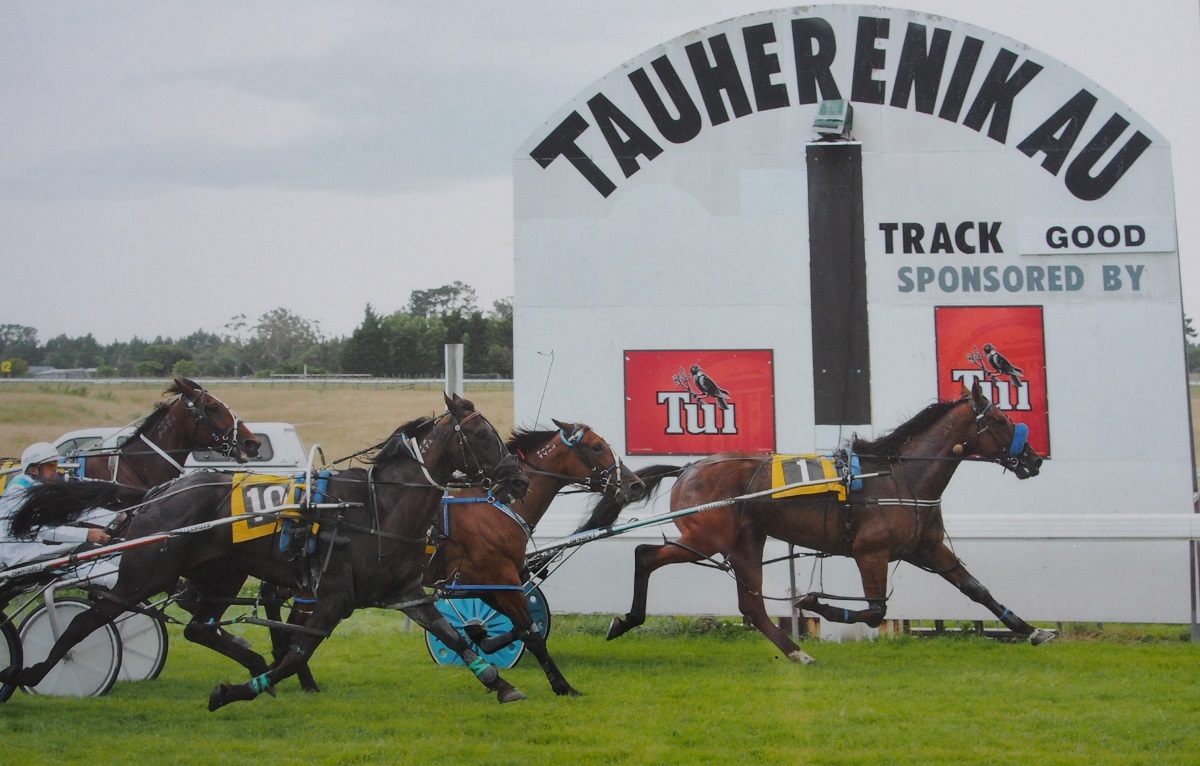
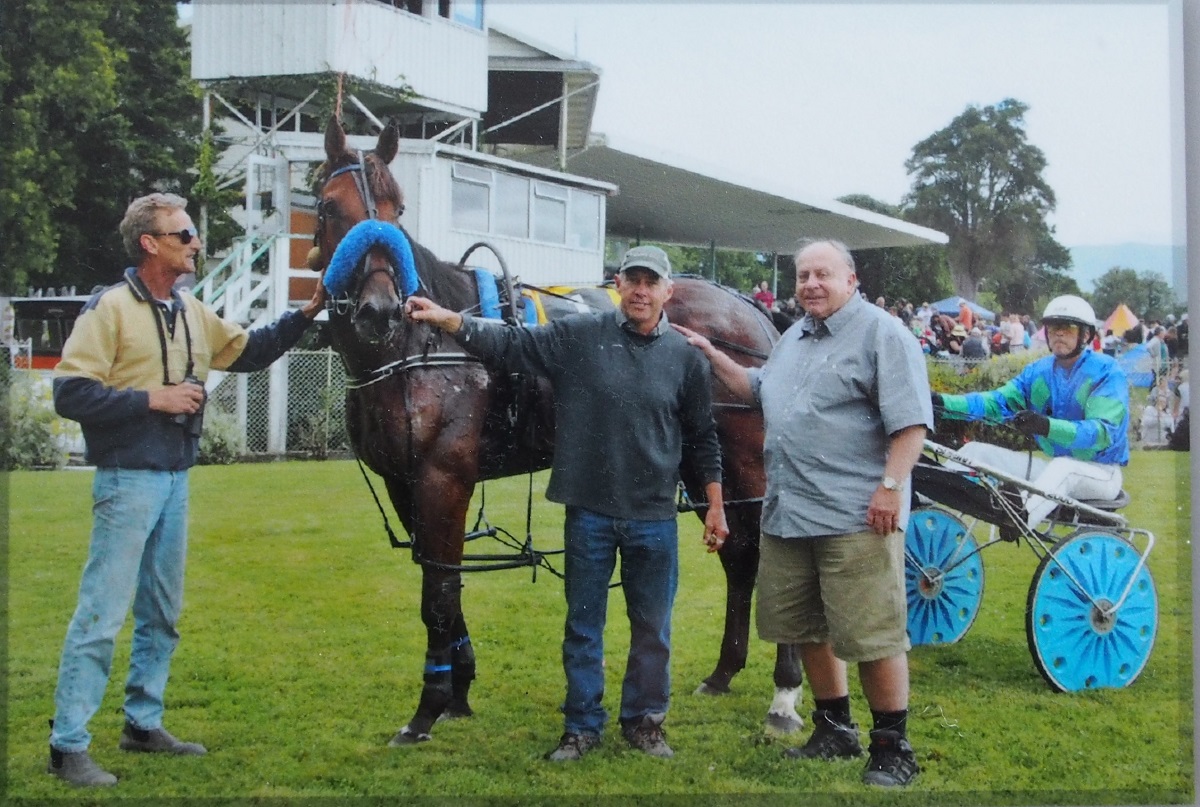
At that point Allan James turned up. He’d worked for galloping trainers Ray Verner, Colin Jillings and Bill Saunders and was retired.
“He said he wanted something to do and could he come and give me a hand.”
Gibbs says over the years Northern trainer Tony Herlihy provided him with a number of horses, including Myeyesadoreya (Bettor’s Delight).
“He rang me one day and said he had a filly that had been broken in, was a bit small, needed time and would I like to lease her.”
She was out of La Joconde (Totally Western) who’s the dam of millionaire pacer Alta Orlando, which has won twenty six races including the Group One Schweppes Sprint at Menangle.
“She (Myeyesadoreya) won three for us and John Curtin sold her to America.”
Gibbs also had success with another horse purchased from Herlihy – Cerberus (Real Desire), which won four.
Around that time he took on a caretaker’s role at the Levin Racecourse for three hours a day, continuing there for four years.
“By doing that I was able to work the trotters there. I left after three and a half years because the track started to get busier, the job became full-time and that was too much for me. They started running jumpouts. They got forty or fifty horses when I was there at the start. Now five years later, they get two hundred and twenty. It costs $65 to enter each horse.”
In the thirty two years Murray has been training he’s had forty six winners. Last season was his best, with six winners from thirty two starters.
A problem for all Central District trainers is having to deal with the reduced length of the racing season.
“I’m convinced if they had more dates down here we’d get the horses, and there’d be more horses trained here. Up until a couple of years ago the last date was at the end of May which wasn’t too bad. But this year the last meeting was March 30th.”
He says everyone he talks to wants more racing at the Manawatu Raceway.
“You just can’t have Alexandra Park and Cambridge. It’s like Super Rugby. You can’t just have that on its own, you need grass roots rugby. There’s a lot of horses that are only going to win races at tracks like Palmerston. A lot of trainers have brought their horses here, they’ve got their confidence back and go on to race in Auckland. Without Palmy they wouldn’t have earned any money for their owners.”
Gibbs say the Greyhounds race every week at Palmerston North, so the officials and television crews are on-course.
“We’ve had a couple of dual code meetings with the greyhounds, and they’ve worked well. It would be great to have a meeting a month with say five or six harness races with the greyhounds. I might get an owner ring me at the end of the season to train a horse. I’ll tell them straight that unless they think it’s good enough to go to Cambridge over the winter it’s just not worth it, and it’s better to get them trained up north.”
Over the years Gibbs has trained horses for the Flemings, a well-known Taranaki based harness racing family. These include Smokinhotcheddar (Betterthancheddar) and Hail Lucius (Sportswriter)
“Phil (Fleming) was a part owner of Hail Lucius which was trained by Regan Todd. He’d just gone off the boil. We’d only had him for about three weeks, we put him in at Palmy and won the Manawatu Cup. That was a great thrill. Canterbury racing is the best in the world in my opinion. Hail Lucius was running last and running 56 halves. He just needed to come up here, have a freshener and then take on easier company at Palmy and get his confidence back.”
Gibbs has also pre-trained horses for Brent Mangos, Andre Poutama, Phil Fleming and Mike Berger.
“Mike had a horse in work called Pull The Other Leg (Sir Lincoln). He rang me and asked me if I would train it because lockdown was coming, and he couldn’t train it on the Cambridge track. I got Smokinhotcheddar because of lockdown as well. I had Pull The Other Leg for about four months and within two weeks of leaving here, he won a race.”
Smokinhotcheddar has won three races for Gibbs including the $10,230 Taranaki Breeders Stakes at Hawera. She’s won a further three for Andre Poutama.
Prominent Canterbury owner Wayne Stewart who races a good number of horses out of the Greg and Nina Hope barn has also had horses with Gibbs.
“Any that don’t make the grade down there he’s quite keen to bring them up here. I’m hoping that association carries on for a bit.”
Running Cristiano Buccini (Alta Christiano) at Cambridge on Race by Grins night is one of the highlights of Gibbs career to date.
“Greg Sugars was over from Australia and because the horse was owned by Wayne who’s associated with the Hopes and Sugars through AG’s White Socks, (Rock N Roll Heaven) we got Greg to drive him. We ran 3rd and paid $11 for a place.”
Gibbs says he’d like to own more horses so that the decision as to whether they would stay or go would be his.
“It means I can pretrain over the winter and get them ready for the season rather than be thinking (wondering) what horses I am going to have to race this year.”
One such horse is Beach Patrol (Downbytheseaside) which he bought from Woodlands Stud.
He’s out of Thin Lizzie (Bettor’s Delight) whose mother Kamwood Elsie (Falcon Seelster) left Lancewood Elsie (Bettor’s Delight). She won fourteen races including the Group One Four Year Old Diamond and the Group Two Franklin Cup.
“I’ve probably got a reputation of taking too long to break them in. But with this guy you show him something one day and he’s doing it the next. The longest time Allan and I spent on him was mouthing him which took ten days. After two days of long reining he was doing everything you asked of him. After jogging for two days behind the Ute I’m telling Allan to let me go. A week after that we drove him round the track. I’m very excited about him.”
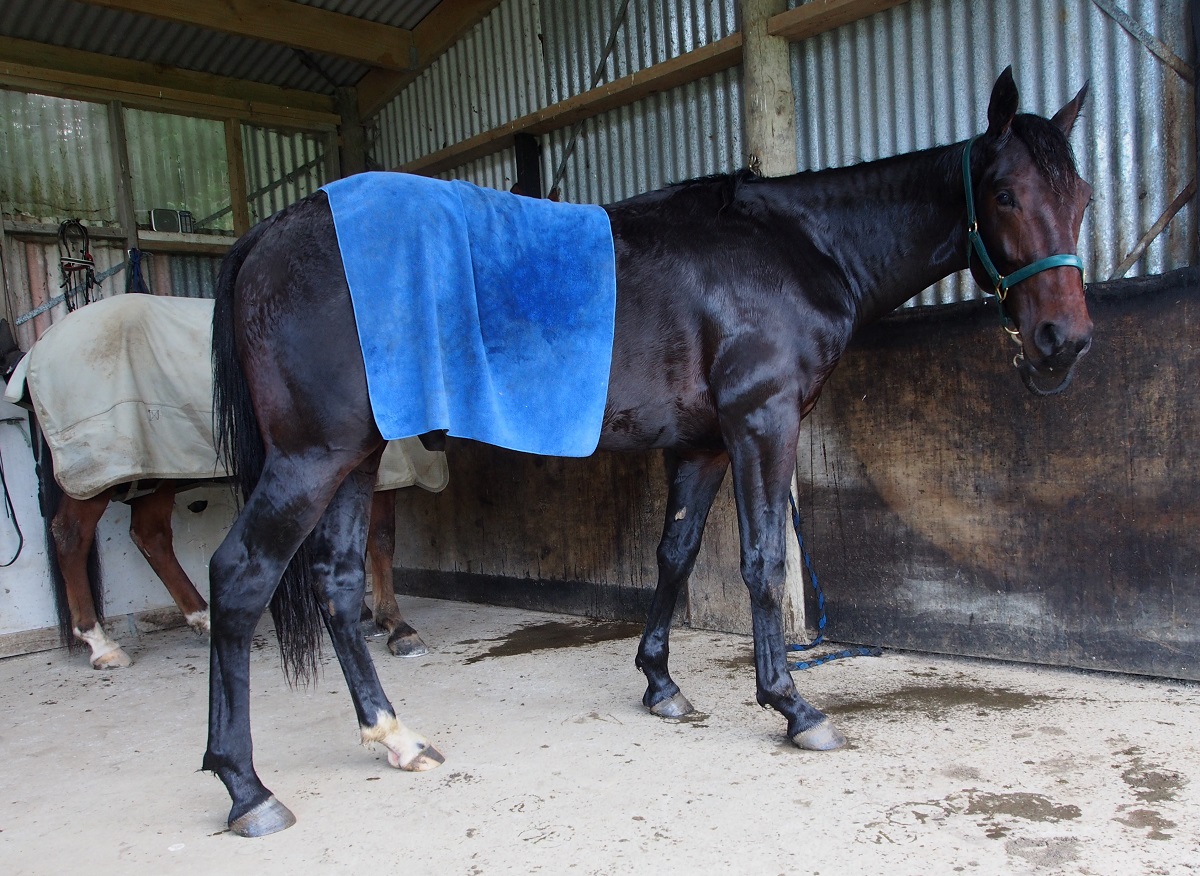
Gibbs says strong family support and the horses have kept him going. He remains hopeful that Manawatu will be given more racing dates so that he can do what he loves best; taking a horse to Palmy and winning.
by Bruce Stewart, for Harnesslink
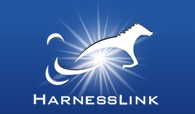
 USA
USA Canada
Canada Australia
Australia New Zealand
New Zealand Europe
Europe UK / IRE
UK / IRE


